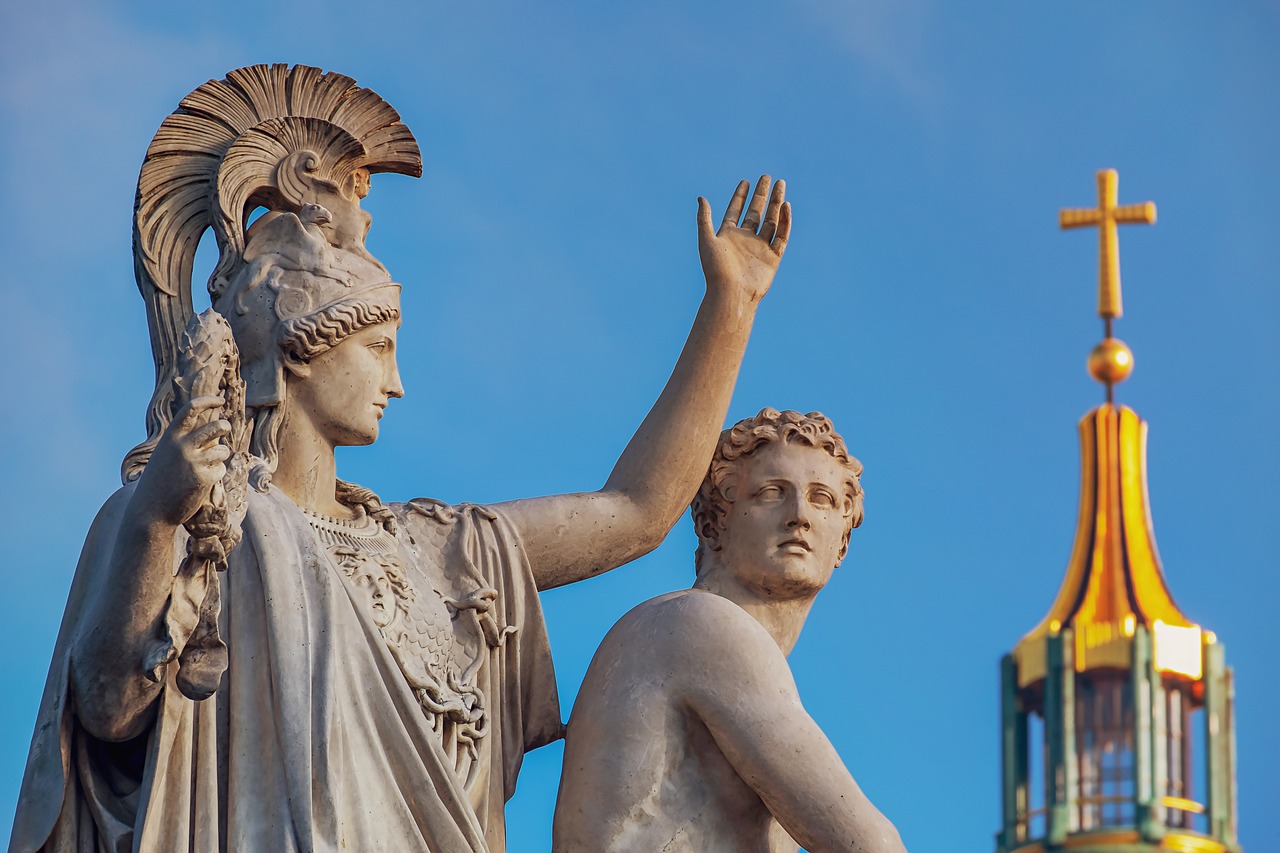Greek mythology encompasses a rich tapestry of tales related to deities, heroes, and ancient rituals practiced by the Greeks, dating back to Classical antiquity. While figures like Plato recognized the fictional elements within these myths, they were primarily accepted as factual by the common people. Greek mythology has left a lasting impact on Western arts and literature, which have been deeply influenced by its themes and narratives. Cultures throughout history have crafted their own myths to explain natural phenomena or depict the exploits of gods and legendary figures, but Greek mythology stands out for its imaginative richness and appeal, continually inspiring poets and artists across ages.
Literary and Archaeological Sources of Myths
The Homeric epics, notably the Iliad and the Odyssey, are foundational texts in Greek mythology. The ancient historian Herodotus asserted that poets like Homer and Hesiod shaped the identities of the Olympian gods, providing them with their well-known characteristics. The Iliad serves as an intricate connection to earlier myths, as evident in its portrayal of characters like Apollo, whose lineage is immediately understood by the audience.
Hesiod’s significant works, Theogony and Works and Days, are essential for comprehending the ancestral narratives among the gods. Theogony, thought to be written around 700 BCE, intricately weaves the divine lineages and accompanying folktales. Meanwhile, Works and Days presents a farmer’s calendar alongside a discourse on justice meant for Hesiod’s brother, offering insights into moral and practical guidance for life.
In addition to the aforementioned epics, various fragments of post-Homeric poetry build upon the legendary tales, especially regarding the Trojan War. The Homeric Hymns, though shorter, also contribute significantly by exploring important religious myths. Lyric poets, particularly Pindar, and the tragic playwrights of the 5th century BCE—Aeschylus, Sophocles, and Euripides—also preserved a wealth of myths and traditions, enriching the Greek mythological landscape.
Influence of Hellenistic and Roman Times
During the Hellenistic period, certain scholars, including Callimachus, cataloged obscure myths, while Euhemerus introduced the idea that the gods were once mortal figures. Apollonius of Rhodes is remembered for providing a comprehensive account of the Argonauts’ quest for the Golden Fleece, a critical narrative in the mythic canon.
As the Roman Empire flourished, several works, such as Strabo’s Geography and the Library of Pseudo-Apollodorus, compiled and preserved various mythological tales. The writings of Plutarch and Pausanias further contributed to the understanding of Greek mythology, while Latin texts by Hyginus offered insights into Hellenistic traditions.
Archaeological Contributions
The groundbreaking discoveries concerning Mycenaean and Minoan civilizations have greatly enhanced contemporary understanding of Greek mythology. The excavations led by Heinrich Schliemann and Sir Arthur Evans uncovered artifacts that reflect the cultural practices linked to myth and ritual during these ancient times. The Linear B script, primarily used for record-keeping, has left scholars with a monumental yet incomplete picture of myth-related activities. Artifacts, especially pottery from the 8th century BCE, illustrate scenes related to the Trojan legends and the feats of Heracles, albeit with challenges in interpretation due to their formal designs.
The transition through the Archaic, Classical, and Hellenistic periods showcases how both Homeric and various other mythological scenes began to enrich the evolving narrative landscape of Greek mythology.



